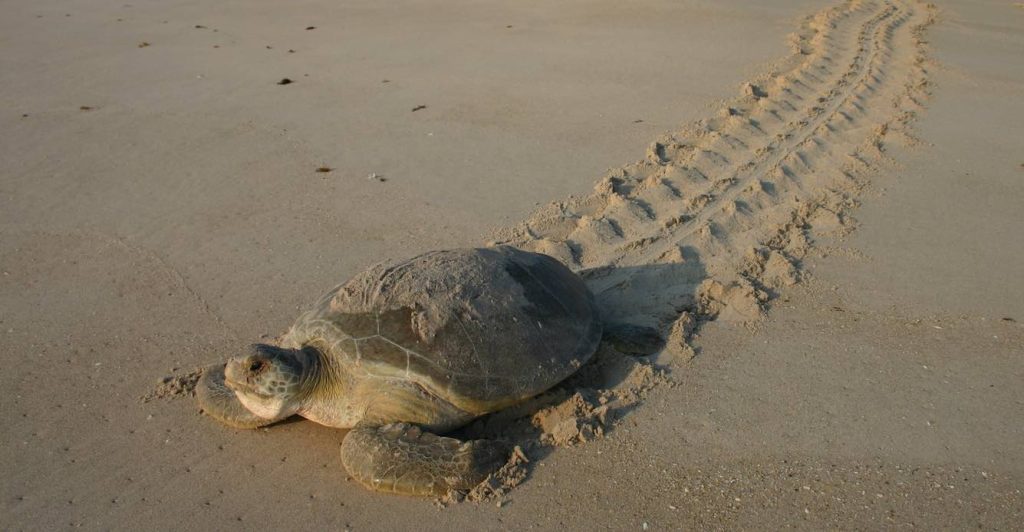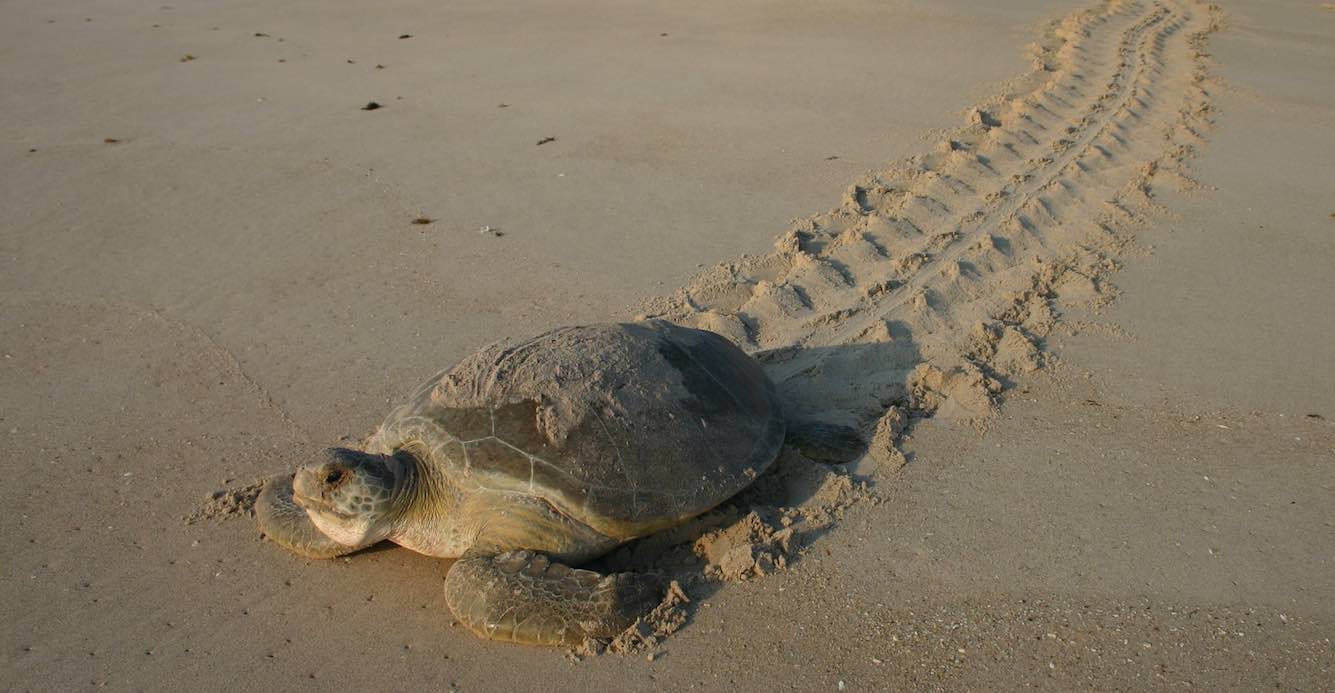
A breeding ground for green turtles has seen a 500 percent boom in the numbers of clutches of eggs laid since hunting them was banned.
Scientists say the great conservation success story shows how numbers can slowly recover after killing the turtles was outlawed on Aldabra Atoll in the Seychelles in 1968.
Back thenm around 2,000-3,000 clutches of eggs were laid a year—a figure that stands at 12,000-15,000 in the last data from 2019.
And with Aldabra’s turtle population still being well below estimated pre-exploitation population numbers, the increase is likely to continue.
A team from Exeter University analyzed the figures provided by researchers from the Seychelles Islands Foundation.
RELATED: Rare Turtles Known For Their Permanent Smiles Saved From Extinction in Myanmar
Study lead author Adam Pritchard, from the Centre for Ecology and Conservation on Exeter’s Penryn Campus in Cornwall, said, “Green turtles have suffered massive historical population declines due to intensive harvesting of nesting females
“Aldabra Atoll was the first green turtle nesting site to be protected in the Western Indian Ocean, with a ban on turtle capture in 1968, followed by continued long-term monitoring by Seychelles Islands Foundation researchers.”
Professor Brendan Godley, who helped supervise the research, added, “It’s been an honour to support the analysis of the decades of work by the Seychelles team.
“The ongoing population increase of Aldabra’s green turtles is testament to long-term protection, and offers some clear evidence of the fact that we can be optimistic about marine conservation, well enacted.”
The study’s results reveal that green turtle clutches have increased at Aldabra by 2.6% per year overall, with the greatest increase at Settlement Beach on Picard, where exploitation of nesting females was historically the most intense.
Cheryl Sanchez, co-author of the study, published in the journal Endangered Species Research, who is currently doing a PhD on Aldabra’s turtles, said, “This study demonstrates the importance of long-term monitoring, which is often seen as less glamorous and valuable than targeted research.
“It has taken decades of tireless commitment to collect the data to confirm this increase, and the foresight to protect the nesting population before it was too late.
“Aldabra’s green turtles should continue to be an incredible conservation success story that we can follow for decades to come.”
The study’s figures confirm Aldabra as the second-largest monitored green turtle rookery in the region.
The research also shows the considerable contribution of Aldabra to regional green turtle numbers and clearly demonstrates the benefits of long-term protection and monitoring.
HATCH The Good News By Sharing It With Your Friends On Social Media…




















